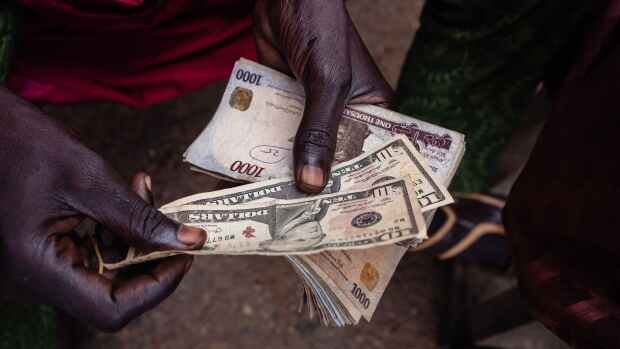Street currency dealers in Africa face off against Governments
Out of options to defend their currencies, African policymakers from Harare in the south to Juba in the east and Lagos in the west are cracking down on street dealers.
Monetary authorities in Zambia, Zimbabwe, Nigeria and South Sudan are throwing everything at the money changers, who they accuse of undermining their currencies by speculating. They’ve banned and arrested them, imposed hefty fines and revised existing operational guidelines for bureaux de changes.
All four countries have thriving parallel markets whose exchange rates are far more utilized than the official rates set by the central banks.
Ghana has now joined the fray and imposed new rules on street dealers.
Both Zambia and South Sudan say their moves are aimed at formalizing the foreign-exchange market.
Foreign investors are often discouraged from investing in nations with parallel markets because of the impact they can have on the stability of a currency, said Charles Robertson, the head of macro-strategy at FIM Partners.
The Bank of South Sudan’s Governor James Alic Garang said Thursday they had seen some “partial success” from the measures rolled out in April under a so-called “foreign-exchange market reorganization strategy” targeting the street dealers.
“Some of those people who were selling on the street, many of them have begun to come to the bank,” Garang said in an interview on the sidelines of the African Development Bank annual meetings in Nairobi, Kenya.
Ghana’s Governor Ernest Addison on Monday ordered foreign-exchange bureaus to stop advertising rates outside their premises and on social media and said the central bank had set up a task force to ensure compliance.
“The bank is fully aware of the operations of illegal operators in the foreign-exchange market and is working with the financial intelligence center to sanitize the market,” he said at briefing in the capital, Accra.
Lack of Confidence
Still, the steps taken by the countries may fall short, said Mosope Arubayi, economist at IC Group.
“It does not address the fundamental issue of lack of confidence in the local currencies,” said Arubayi. “You cannot restore confidence by criminalizing or arresting people. Besides, these traders do not quit the trade but just go underground and devise more creative means to continue their business,” she added.
In Zimbabwe, street dealers abandoned their regular spots in city centers after authorities started cracking down on the unofficial market and switched to using WhatsApp to ply their trade and evade arrest.
At the center of the mushrooming street currency market is the limited supply of US dollars through official channels and until that’s addressed, they’re likely to proliferate, said Hasnain Malik, the head of equity strategy research at Tellimer in Dubai.
“The charge of market manipulation to justify cracking down on currency traders would be more credible if the banks and central bank were able to supply foreign exchange to the mass population at official exchange rates,” he said.
Shooting The Messenger
Many of these markets have some restrictions on access to foreign currency. In Nigeria, for instance, there are still restrictions on the use of most naira ATM cards to make payments for dollar transactions. In Zimbabwe the government strictly takes US dollars for passport payments, leading to sidelining of its new gold-backed currency, the ZiG.
“Rather than focusing on foreign exchange demand or supply crackdown, state actors should be working toward liberalizing the market and allowing the exchange rate to settle at market-determined rates,” Arubayi said.
They should also consider if their interest rates are high enough, said Robertson.
“Central banks are shooting the messenger rather than reading the message,” said Robertson. “Which is that interest rates aren’t high enough to inspire trust in the currency.”








